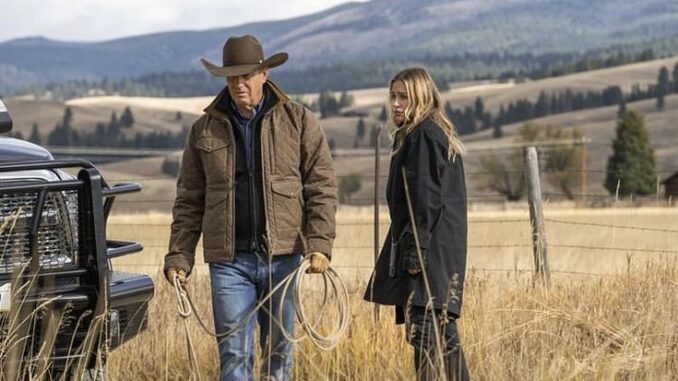
Yellowstone’s Showdown: More Than Meets the Muddy Eye
The dust hasn’t settled on the Yellowstone Ranch, and the echoes of off-screen drama still reverberate through the canyons of Hollywood gossip. While the final season of “Yellowstone” promises a dramatic conclusion, the real spectacle, shrouded in rumors and whispers, has been the reported clash between its two leading men: Kevin Costner, the stoic patriarch John Dutton, and Wes Bentley, his ambitious, conflicted son, Jamie. But beyond the sensational headlines and speculative articles, what really happened on that Montana set, and what implications does it hold for the show’s legacy?
The prevailing narrative, painted by various sources, suggests a brewing storm of creative and professional differences. Costner, already a legend with a commanding presence, reportedly wanted to limit his screen time for the show’s final run, focusing instead on his passion project, the Western epic “Horizon: An American Saga.” This desire, according to sources, frustrated Taylor Sheridan, the show’s creator, who allegedly envisioned a significant arc for John Dutton in the concluding episodes. But it wasn’t just about screen time. Whispers suggest that Costner also had creative input on the storyline, which clashed with Sheridan’s vision, creating tension and delays.
Enter Wes Bentley, who plays the tormented Jamie Dutton. Jamie’s complex and often villainous role has been a crucial driving force in the show’s narrative. Rumors hint at a growing friction between Costner and Bentley, potentially fueled by Costner’s perceived waning commitment to the series. The speculation suggests Bentley, perhaps sensing an opportunity to elevate his own character’s storyline in Costner’s absence, began advocating for a more prominent role for Jamie. This, some believe, exacerbated the already strained relationship between the two actors.
The reality, however, is likely far more nuanced than the black-and-white picture painted by the press. Hollywood sets are inherently pressure cookers. Long hours, creative differences, and the weight of expectations can easily ignite conflicts. Perhaps the friction between Costner and Bentley wasn’t a full-blown feud, but rather a natural consequence of two driven actors with different perspectives navigating the complexities of a long-running, high-stakes production. Perhaps Bentley wasn’t vying for Costner’s spotlight, but rather simply advocating for his character’s narrative integrity within the shifting landscape of the show.
Furthermore, the power dynamics inherent in a production like “Yellowstone” undoubtedly played a role. Costner, the established star and Oscar-winning director, wielded significant influence. Bentley, while a respected and talented actor, occupied a different rung on the Hollywood ladder. This disparity in power could have inadvertently created a dynamic where disagreements, even if minor, were amplified and interpreted as a clash.
Ultimately, the “truth” of what really transpired between Kevin Costner and Wes Bentley on the “Yellowstone” set likely resides somewhere in the murky middle ground between speculation and reality. It’s a mix of creative differences, professional pressures, and personal dynamics, all simmering under the heat of the Montana sun.
Regardless of the specifics, the reported conflict has undoubtedly impacted the show’s final chapter. While the creators and actors involved will undoubtedly strive to deliver a satisfying conclusion, the shadow of the behind-the-scenes drama lingers. It raises questions about the fragility of creative collaborations, the complexities of fame and power, and the challenges of navigating the intense pressures of Hollywood.
In the end, “Yellowstone’s” legacy will be judged not only by its dramatic storylines and breathtaking landscapes but also by the story behind the story – the tale of the real-life showdown between its stars, a reminder that even the most compelling narratives can be complicated by the human element, and that even in the wide-open spaces of Montana, secrets can be buried deep in the dust.
